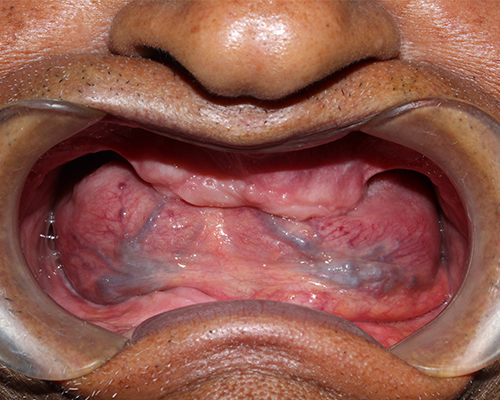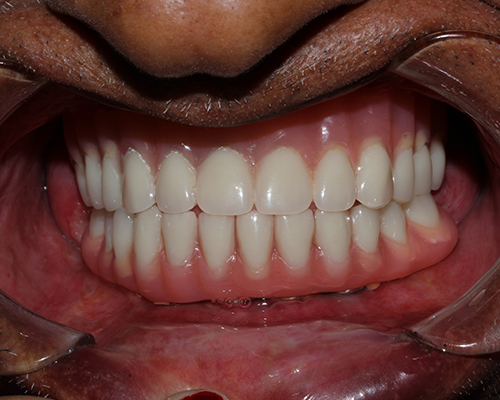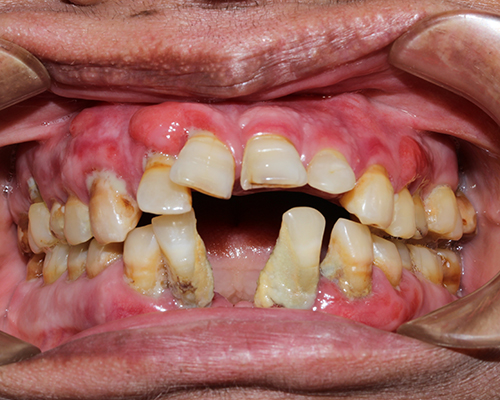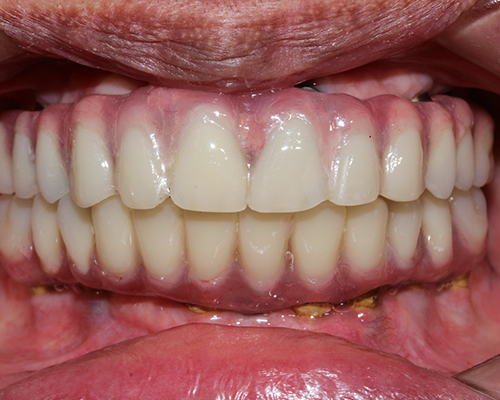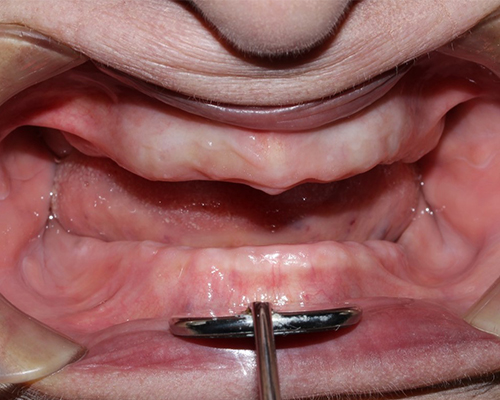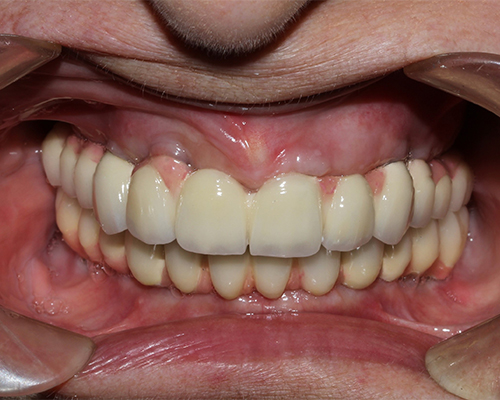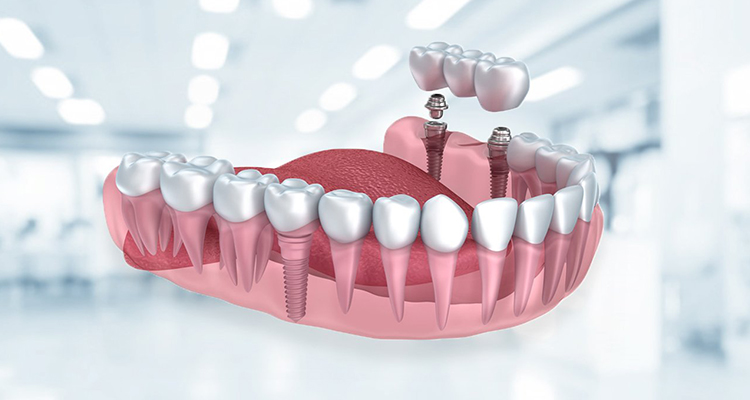
Fixed Full Mouth Implant
Full mouth implants, also known as full arch implants or implant-supported dentures, are a comprehensive dental solution for patients who are missing all or most of their teeth in one or both arches. This procedure involves placing dental implants to support a full set of prosthetic teeth, providing a stable, durable, and natural-looking replacement. Here’s a detailed overview of full mouth implants:
Types of Full Mouth Implants
1. All-on-4® Implants
- Concept: Uses four strategically placed implants in the upper or lower jaw to support a full arch of teeth. The implants are placed at angles to maximize support and avoid anatomical structures like sinuses.
- Procedure:
- Consultation and Planning: Digital imaging and planning software are used to design the treatment plan.
- Implant Placement: Four implants are surgically placed into the jawbone.
- Temporary Prosthesis: A temporary set of teeth is attached to the implants on the same day.
- Healing Period: Over 3-6 months, the implants integrate with the bone (osseointegration).
- Final Prosthesis: Once healing is complete, the temporary teeth are replaced with a permanent prosthesis.
- Benefits: Reduced number of implants, often less invasive, immediate function and aesthetics.
2. All-on-6 or All-on-8 Implants
- Concept: Similar to All-on-4 but uses six or eight implants for additional support and stability.
- Procedure: Follows the same steps as All-on-4 but involves placing more implants.
- Benefits: Greater support and stability, especially useful for patients with denser bone structure or higher functional demands.
3. Implant-Supported Dentures
- Concept: Removable dentures that snap onto implants placed in the jaw.
- Procedure:
- Consultation and Planning: Evaluation and planning using digital imaging.
- Implant Placement: Typically, two to six implants are placed in each jaw.
- Healing Period: A period of 3-6 months is allowed for osseointegration.
- Attachment of Dentures: Custom dentures are made to attach to the implants via snaps or bars.
- Benefits: Removable for cleaning, more stable than traditional dentures, cost-effective.
Benefits of Full Mouth Implants
- Improved Functionality: Restores chewing efficiency and speech, similar to natural teeth.
- Aesthetics: Provides a natural-looking smile, with customized teeth to match the patient's preferences.
- Durability: Implants are a long-term solution, often lasting decades with proper care.
- Bone Health: Prevents bone loss and preserves jawbone structure by stimulating the bone.
- Comfort: Eliminates the discomfort and inconvenience associated with traditional dentures.
Considerations
1. Suitability
- Candidates should have sufficient bone density, or be willing to undergo bone grafting procedures if necessary.
- Overall health is important; conditions like uncontrolled diabetes or severe gum disease may affect candidacy.
2. Cost
- Full mouth implants are a significant investment. Costs can vary widely depending on the number of implants, type of prosthesis, and additional procedures needed.
- It's important to discuss financing options, insurance coverage, and payment plans with the provider.
3. Procedure Duration
- The entire process, from initial consultation to final prosthesis placement, can take several months.
- Temporary solutions are often provided to ensure aesthetics and function during the healing period.
4. Aftercare and Maintenance
- Good oral hygiene is essential to maintain the health of the implants and surrounding tissues.
- Regular dental check-ups and professional cleanings are crucial.
- Patients should follow specific care instructions provided by their dentist to ensure long-term success.
Full mouth implants can significantly improve quality of life by restoring function and aesthetics, providing a stable and lasting solution for missing teeth. Consulting with an experienced implant specialist is key to achieving optimal results.
